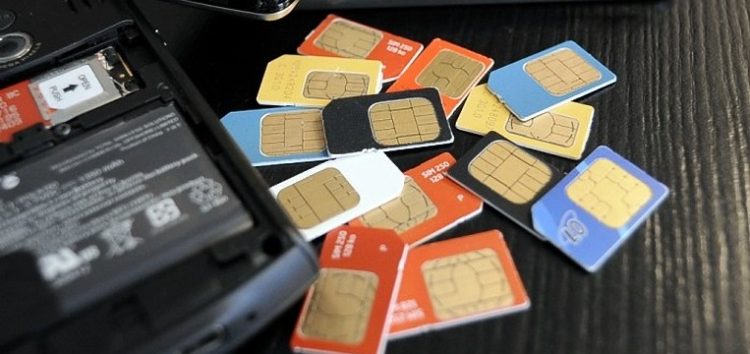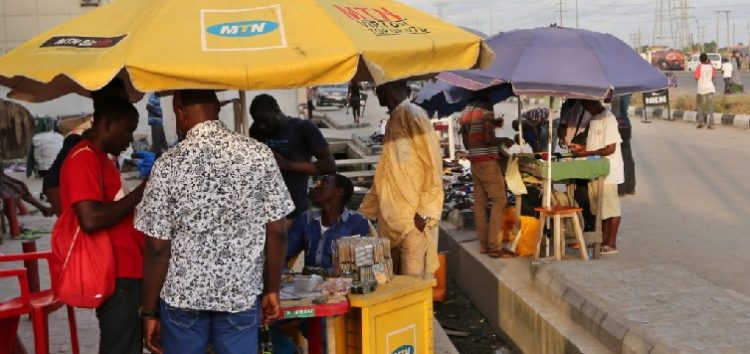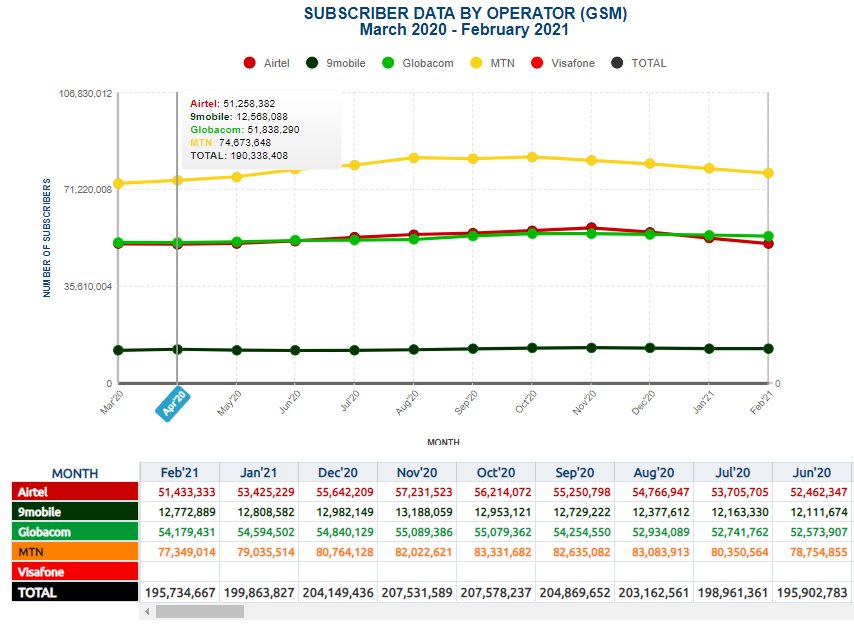Four months after suspending SIM sales and registration, the Federal Government yesterday announced the restart of the exercise from April 19, 2021. According to a statement from the Ministry of Communications and Digital Economy, the ban was lifted following the final approval of the Revised National Digital Identity Policy for SIM Card Registration.
In line with the revised policy, the use of the National Identity Number (NIN) is now mandatory for all SIM registrations in the country.
While enforcing this new SIM registration policy was perhaps the plan all along, the timing of the government’s move begs the question of why now?
What about the Telco Audit Exercise?
Thinking back to when the suspension of SIM sales/registration was enforced in December 2020, the Nigerian Communications Commission (NCC) had stated that it was carried out in order to “allow for an audit of operators’ subscriber registration database“.


The commission claimed the ban would remain in place until that audit was completed. According to the NCC, the essence of the exercise was to clampdown on multiple SIM registrations and fraudulent sales.
However, from publicly available information, there is no indication that the audit exercise has been completed. So, one wonders why indeed has the government resumed SIM registrations despite this being the case?
Over 2 million SIM cards remain unregistered in Nigeria
Recall that when the NCC carried out a SIM registration compliance audit in 2015, MTN was fined N1.04 trillion for failing to deactivate 5.1 million improperly registered SIMs. The fine was later reduced to N330 billion in 2018.
That said, maybe there are no defaulters this time around. But still, the question remains, what is the outcome of that audit? And why has the government decided to lift the ban on SIM registration when it is yet to make public the outcome of that audit or say if the audit was even completed?
Pressure from Frustrated Nigerians
A likely reason the government has ordered the resumption of SIM registration could be due to complaints by several Nigerians across various sectors over the temporary ban. Individuals and businesses alike had aired their grievances while the suspension lasted.


These included cases where subscribers could not retrieve their lines, students could not buy SIMs for UTME registration and business owners were unable to procure new SIMs for customer service agents and expatriates.
Although it seemed the government was bent on only lifting the ban only after the NIN-SIM linkage exercise to allow existing SIM holders to link their NINs, perhaps the continued complaints from Nigerians influenced the latest decision.
Telcos Losing Billions and the Pantami Controversy
Mobile network operators such as MTN and Airtel lost over 8.4 million subscribers and an estimated N12 billion to the SIM registration ban. In the wake of the suspension, mobile subscriptions fell by over 4 million each month between December to January and January to February.


With each passing day of the order, telcos were incurring losses due to a declining subscriber base. The recommencement of the SIM registration was imperative to stem these losses.
Also, Minister of Communications and Digital Economy, Dr Isa Ali Pantami under whose ministry the NCC operates, currently finds himself at the centre of media controversy over comments he allegedly made on Taliban/Al-Qaeda activities and a video where he expressed his disapproval of political appointments.
While Pantami had recently denied similar allegations, some people opine that the Minister has lifted the SIM registration ban at this particular time to combat bad press.
It is necessary to state that while these factors may have “forced” authorities to resume SIM registration at this time, the final ratification of the NIN as a mandatory requirement under the Revised National Digital Identity Policy for SIM Card Registration appears to be the biggest reason.






